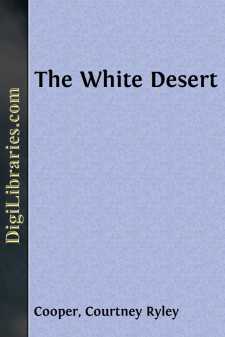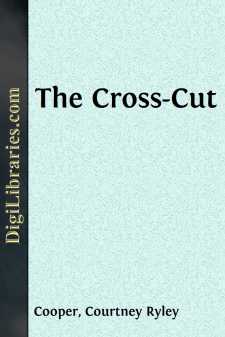Categories
- Antiques & Collectibles 13
- Architecture 36
- Art 48
- Bibles 22
- Biography & Autobiography 813
- Body, Mind & Spirit 142
- Business & Economics 28
- Children's Books 17
- Children's Fiction 14
- Computers 4
- Cooking 94
- Crafts & Hobbies 4
- Drama 346
- Education 46
- Family & Relationships 57
- Fiction 11829
- Games 19
- Gardening 17
- Health & Fitness 34
- History 1377
- House & Home 1
- Humor 147
- Juvenile Fiction 1873
- Juvenile Nonfiction 202
- Language Arts & Disciplines 88
- Law 16
- Literary Collections 686
- Literary Criticism 179
- Mathematics 13
- Medical 41
- Music 40
- Nature 179
- Non-Classifiable 1768
- Performing Arts 7
- Periodicals 1453
- Philosophy 64
- Photography 2
- Poetry 896
- Political Science 203
- Psychology 42
- Reference 154
- Religion 513
- Science 126
- Self-Help 84
- Social Science 81
- Sports & Recreation 34
- Study Aids 3
- Technology & Engineering 59
- Transportation 23
- Travel 463
- True Crime 29
Courtney Ryley Cooper
Courtney Ryley Cooper (1886–1940) was an American writer, circus performer, and former journalist known for his works on crime, the FBI, and the American West. He wrote extensively about outlaws and law enforcement, often collaborating with FBI Director J. Edgar Hoover to produce works that supported the agency. Some of his notable books include "Here’s to Crime" and "Ten Thousand Public Enemies," both of which focus on organized crime during the early 20th century. Cooper's career was tragically cut short when he committed suicide in 1940.
Author's Books:
Sort by:
THE WHITE DESERT CHAPTER I It was early afternoon. Near by, the smaller hills shimmered in the radiant warmth of late spring, the brownness of their foliage and boulders merging gradually upward to the green of the spruces and pines of the higher mountains, which in turn gave way before the somber blacks and whites of the main range, where yet the snow lingered from the clutch of winter, where the...
more...
CHAPTER I It was over. The rambling house, with its rickety, old-fashioned furniture—and its memories—was now deserted, except for Robert Fairchild, and he was deserted within it, wandering from room to room, staring at familiar objects with the unfamiliar gaze of one whose vision suddenly has been warned by the visitation of death and the sense of loneliness that it brings. Loneliness, rather than...
more...



